Beyond The Rock: Welcome to Dwayne’s World
Dwayne Johnson’s portrayal of mixed martial arts fighter Mark Kerr in The Smashing Machine might score the big-budget star (with something to prove) an Oscar nomination.
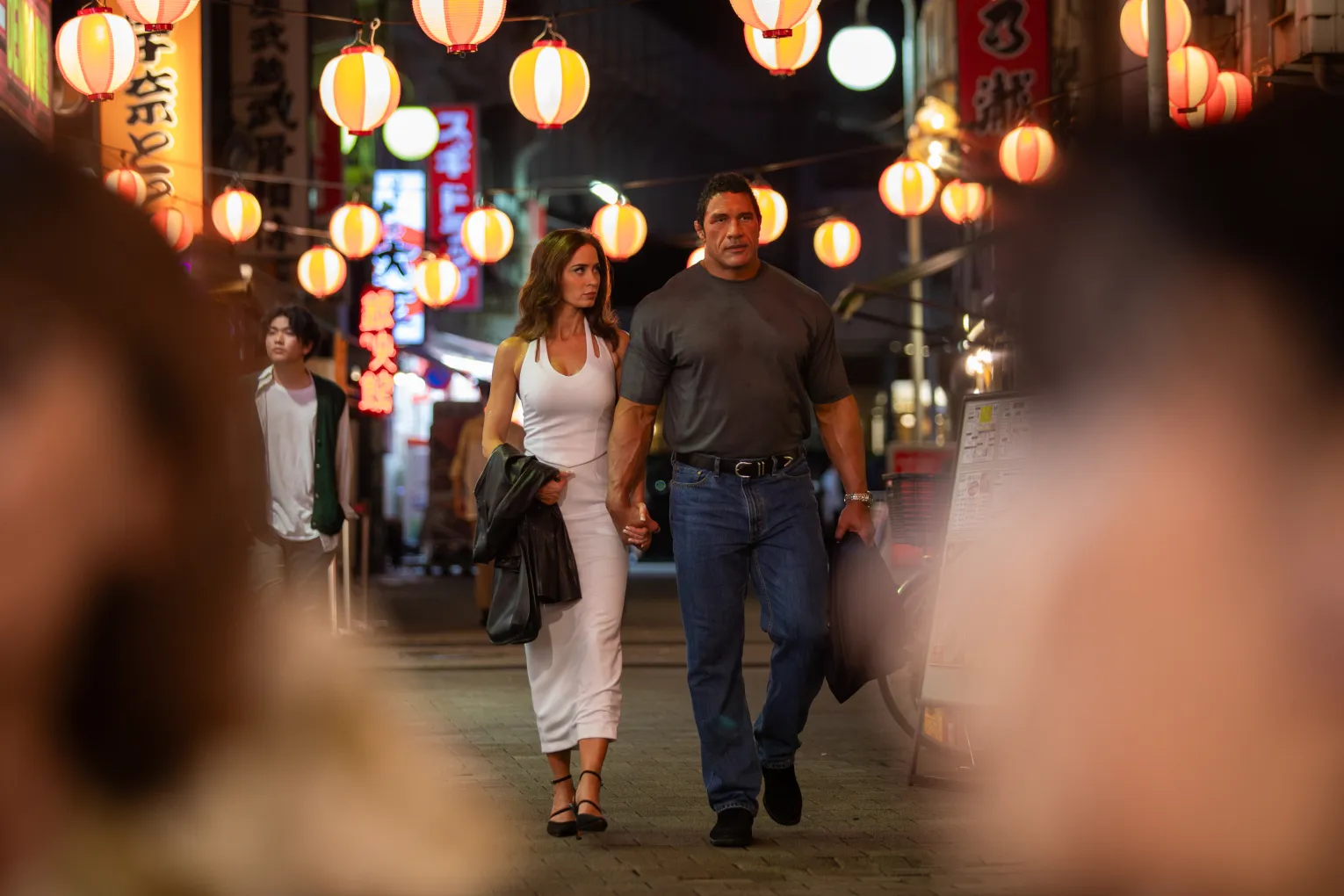
Since he burst onto the movie scene in 2001’s The Mummy Returns and reprised his character in 2002’s The Scorpion King, wrestler-turned-actor Dwayne Johnson, aka The Rock, has become one of the biggest movie stars on the planet.
He is so popular that after he expressed an interest in running for president in 2021 and Americans were asked in an online poll if they would vote for him, 46 per cent said they would.
Of course, this was something former body-builder-turned-actor Arnold Schwarzenegger was denied as an Austrian. California-born Johnson would certainly qualify. Still, the 52-year-old, who endorsed Barack Obama in 2008 and 2012 and Joe Biden in 2020, has distanced himself from politics of late, instead focusing on his acting career.
With his new movie, Benny Safdie’s The Smashing Machine, made for a meagre US$40 million (A$60 million), compared with his big-budget blockbusters including the Fast & Furious series, the Jumanji movies and Moana and its sequel, Johnson wants to prove he can be taken seriously as an actor. His portrayal as mixed martial arts fighter Mark Kerr from 1997 until 2000 in The Smashing Machine might even score him an Oscar nomination.
At the Venice Film Festival, which Johnson acknowledges was his first time at a European film festival (the crowd screamed for him more than anyone else), he credits Kerr for allowing his story to be told, warts and all.
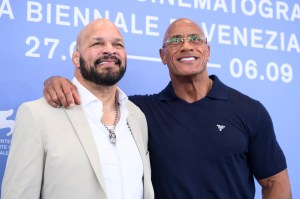
“It’s not about the wins and losses, it’s certainly about the pressure to win and the pressure to deliver, and what happens when you don’t deliver,” Johnson says. “But it’s also a film about what happens when winning becomes the enemy. We can all can relate to that pressure.”
That pressure, which led to Kerr overdosing twice, very much extended to Kerr’s long-suffering partner Dawn Staples, played by Emily Blunt. The British actress, who co-starred with Johnson in 2021’s Jungle Cruise – they call each other “best friends” – had brought him to Safdie’s film after she had appeared with the director in Oppenheimer.
You might like
But that didn’t stop her from being overwhelmed by Johnson’s appearance. “It changed the air in the room, it was really extraordinary,” Blunt says.
Safdie had told Johnson that he needed him “to get a little bigger and puffier” and the actor was okay with that.
“The transformation was something I was really hungry to do,” Johnson admits. “I had been very fortunate to have the career that I’ve had over the years and to make the films that I’ve made, but there was this voice inside of me saying, ‘I can do more, and I want to do more. What does that look like?’
‘that transformation could not have happened without my best friend being there to support and encourage me’
“From the time we worked on Jungle Cruise together Emily really encouraged and believed in me and said, ‘There’s a place that you can put all the stuff that you have gone through as a kid’. I’d shared everything that I’ve gone through with her and she said, ‘That place is what you love to do, which is acting, and you have me, let’s do this together’. So that transformation could not have happened without my best friend being there to support and encourage me and just say, ‘You can do it’.”
Johnson, widely regarded as one of the greatest professional wrestlers of all time, was integral to the development and success of the World Wrestling Federation (WWF, now WWE). He says he’d loved wrestling and loved connecting with the crowds.
“There’s that performative aspect, but it’s also very bombastic, it’s very over the top, and it’s very broadcast-y. What was interesting back then was when I met Mark Kerr for the first time. He was this hero to all of us, this man who, especially as a heavyweight, was so dominant. I remember being so enamoured of him and here we are, years later, and life has come full circle.”
In creating the character Johnson had to apply extensive facial prosthetics and replicate Kerr’s imposing physical appearance.
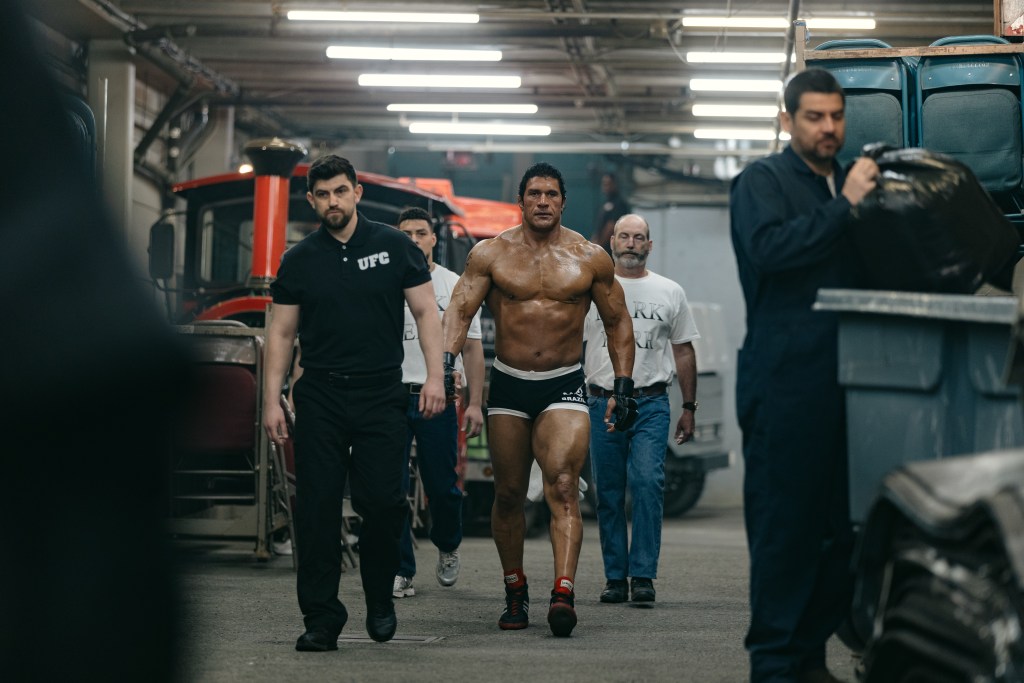
“He had this silhouette that was very unique,” notes Johnson, who underwent specific training. “As an amateur wrestler there are movements that Mark would do all day to build certain fast twitch muscles and, you know, I’m in my fifth level of life. But Benny said, ‘I need you to do it’, so I tried.” (Safdie ultimately won the best director prize in Venice.)
Subscribe for updates
Kerr was also at the festival at both the press conference and premiere. When Johnson sang his praises calling him “a beautiful soul”, “incredibly caring and gentle and kind” and possessing “a child-like curiosity”, Kerr was moved to tears, as was Johnson, especially after the film’s resounding premiere.
Johnson says The Smashing Machine is as much about the sacrifices Dawn makes to be in a relationship with Kerr.
“Emily was able to bring out the raw humanity in Dawn. She got to know Dawn very well and they became friends. Also, from my vantage point, I saw this with my dad as I come from a line of professional wrestlers. My dad was a wrestler before the wrestling boom and I know what it’s like to watch the woman that he loves watch the man that she’s committed to, fall in line and sacrifice her own life and her dreams.
“Emily represents this too and you don’t hear that a lot about the wives and the girlfriends or the husbands and the loved ones. I thought Emily did a beautiful, brilliant job of a raw portrayal of a woman who was by Mark’s side and at that time was his greatest love.”
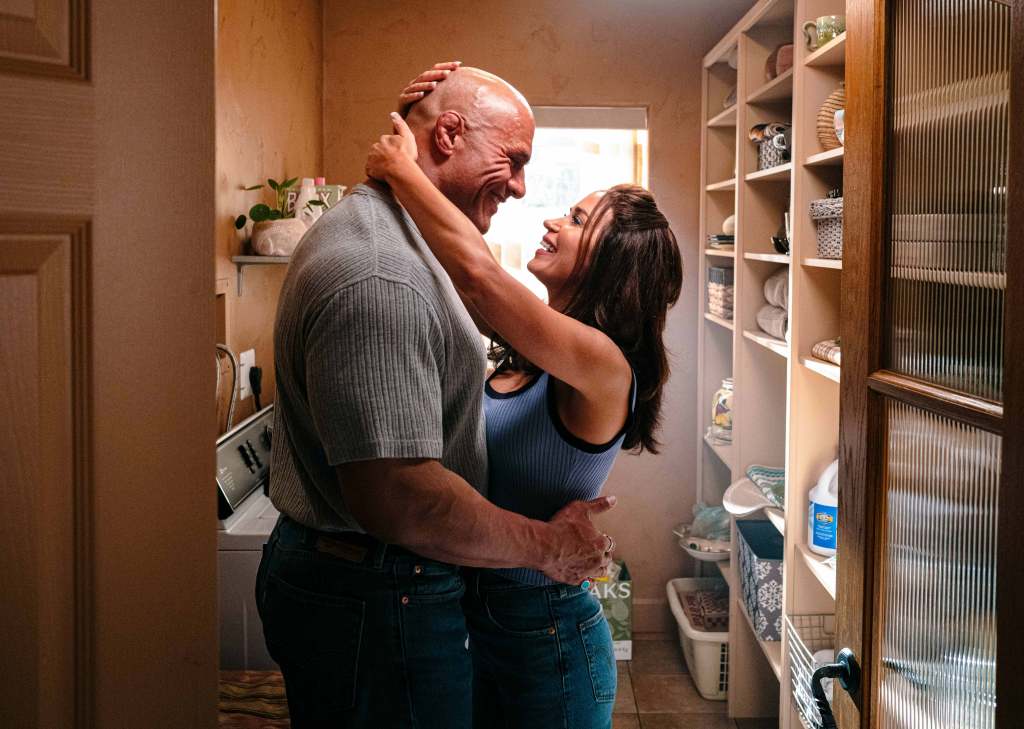
Johnson had started his professional wrestling career in 1996, when his wrestler father, Rocky Johnson, helped him secure a contract with the WWF. (His wrestling heritage extends to the families of both his parents.)
In 1983, Johnson’s father together with Tony Atlas became the first Black tag team champions in WWE history. His uncle Ricky was also a wrestler. Johnson spent part of his childhood in Auckland with the family of his mother, “Ata” Fitisemanu, the adopted daughter of Peter Mavia, a professional wrestler and part of the Samoan Anoaʻi family.
Ata’s mother Lia was one of the first female pro wrestling promoters and now Johnson’s daughter Simone, 24, is following in the family tradition as a wrestler. In 2008 Johnson inducted his father and grandfather into the WWE Hall of Fame. Was his father an inspiration in any way regarding the tenderness of the character?
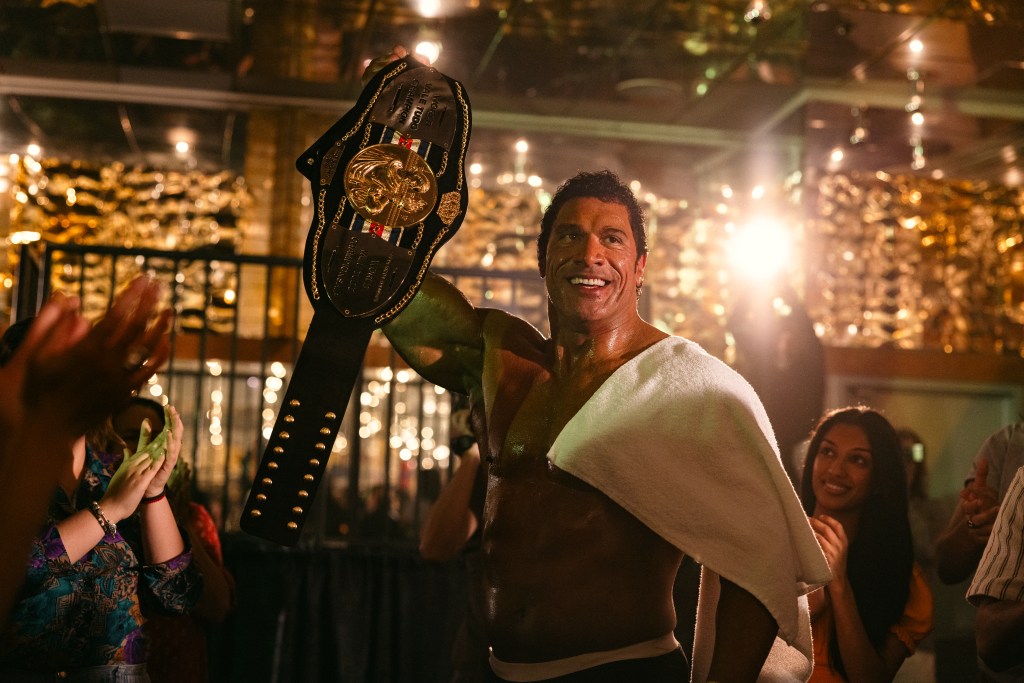
“I don’t think my dad was an inspiration in terms of his tenderness,” Johnson responds. “That wasn’t really my dad. He was homeless by the time he was 13, so his capacity for love was very limited. That’s the man who raised me. Tough love.
“What Mark lived with for a very long time and I think in some ways (is) why he beautifully works his way through this stuff, is because there’s also a tremendous amount of shame involved. And I think that’s what my dad lived with for a long time, and then he suddenly passed away a few years ago in 2020.
“My dad was a man who struggled, but the part that inspired me to play Mark Kerr wasn’t the shame part, because we all deal with that. It was more that I’m hungry for something, and I want to go after it, and I believe in this thing, I’m going to put in the work to get it done and to do it with my own two hands. That’s what Mark Kerr does and that’s what my dad did.”
The Smashing Machine opens in cinemas on October 2.
Helen Barlow is a Paris-based Australian freelance journalist and critic. In 2019 she received the La Plume d’Or for her services to French cinema.
Want to see more stories from InDaily Qld in your Google search results?
- Click here to set InDaily Qld as a preferred source.
- Tick the box next to "InDaily Qld". That's it.
Free to share
This article may be shared online or in print under a Creative Commons licence

